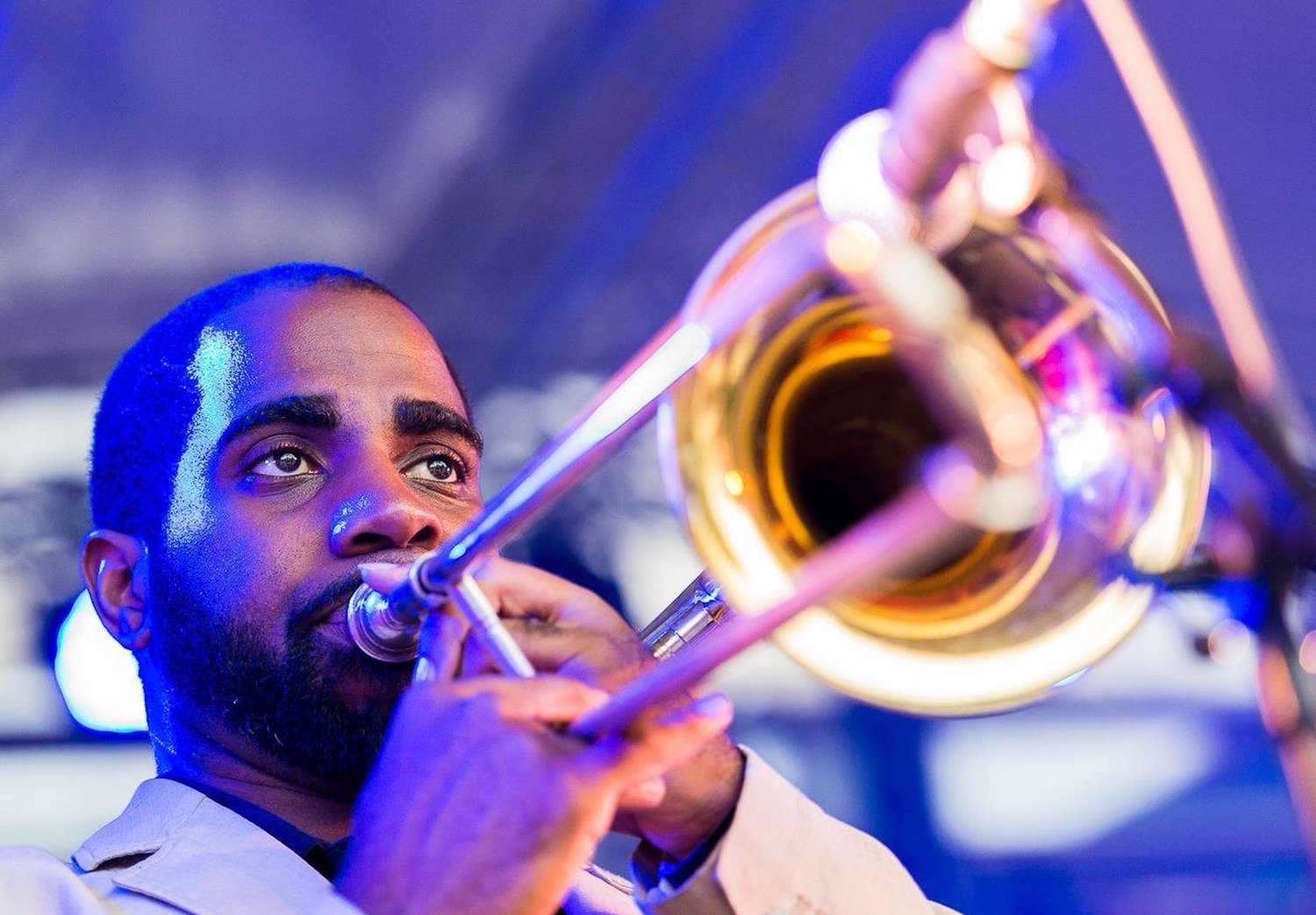Black comedy, past and present
Baldwin delves into the history Black comedy
The Baldwin Public Library hosted a presentation called “The History of Black Comedy,” by Robert Stringer, a lecturer, professional trombonist and Baldwin resident, on Feb. 16, in honor of Black History Month.
Stringer started the discussion by explaining how, in the mid-19th century, slaves on Southern plantations would engage in “cake walks,” dressing up like their owners and mocking them in “good fun.” Their masters would judge the best imitators, and award them with cakes.
“They say slaves are happy because they laugh and are merry…,” Stringer said, quoting John Little, a former slave. “We did it to keep down trouble, and to keep our hearts from being completely broken; that is as true as the gospel!”
Stringer discussed minstrel shows, which were the most popular form of entertainment in the U.S. from 1840 to 1890. White performers imitated Black music and dance, and spoke in a “plantation” dialect based on the ugliest stereotypes of African-American slaves.
Stringer touched on Bert Williams, a prominent Vaudeville performer in the 1920s; Moms Mabley doing stand-up in the 1960s on the Chitlin’ Circuit, venues where Black comics were safe and welcomed; Godfrey Cambridge, one of the country’s best-known Black comedians in the 1970s (who attended Hofstra); and Nipsey Russell, a regular panelist on TV game shows in the ’50s and ’60s.
Then Stringer moved on to more contemporary figures, including Redd Foxx, Richard Pryor, Flip Wilson, Bill Cosby, Eddie Murphy and Chris Tucker.
“Comedy helps us make sense of the tragedies and absurdities of life,” library Director Elizabeth Olesh said, adding, “There is a rich history of Black comedians who have done exactly this, and have put a spotlight on the Black experience.”
SUB: Is there local Black comedy?
Long Island appears to have inherited, if not perpetuated, the segregationist history of stand-up comedy. Asked about the Black comedy scene here, local comedian Nigel Fullerton, 38, and another Black Long Island comic who wished to remain anonymous, both said, “There is none.”
“There are so many funny people that need chances and need opportunities,” Fullerton said.
He remembers telling jokes in a room full of white people. “Every time I said something,” he said, “they looked at me like I’m an alien.” Fullerton spoke of how Black comedy is about culture, and how audiences in segregated communities can’t understand or respect the cultural differences between the races.
Fullerton told the Herald about another Black comic kneeling on a Long Island club stage when the Colin Kaepernick controversy was in full swing. A white headliner complained to the producer of the show, and the Black comic was asked never to return. Likewise, he recalled another Black comedian who was called the N-word by a white audience member — and that comedian was also told not to return.
V Lince, 32, a nonbinary Black comic from Rockville Centre who uses collective pronouns, said that the history and present reality of Black comedy is mostly about Black, cishetero men, “It needs to be addressed how there isn’t enough Black women in comedy,” they said. “For February, they should always have something in the calendar.”
Lince said they viewed this lack of diversity as an opportunity for disenfranchised comics. “How many white male, cis opinions can the audience take?” they said, explaining that the market is oversaturated with white, male comedy and that more diverse comics are in demand. Fullerton agreed, saying that Long Island comedy is “always the same white guy.”
One can count the number of Black comics on Long Island on one hand, Lince said, because opportunities for stage time are limited to only one comedy club franchise, Governor’s, and a few independent shows at cafes, bars and firehouses. “I usually go into the city, take the LIRR, and do my rounds,” Lince said.
“Being how NYC is the mecca for comedy,” they added, “… it pushes out the ambitious, ready-to-go comics.”
Lince believes that digital efforts may diversify the Long Island comedy scene, but Fullerton and the other Black comedian were less optimistic. “[The comedy clubs] have opportunities to capitalize on diverse talent, and they have made strides in terms of [white] female comics,” Fullerton concluded, “but if they’re making money, there is no reason to change.”

 47.0°,
Overcast
47.0°,
Overcast 






